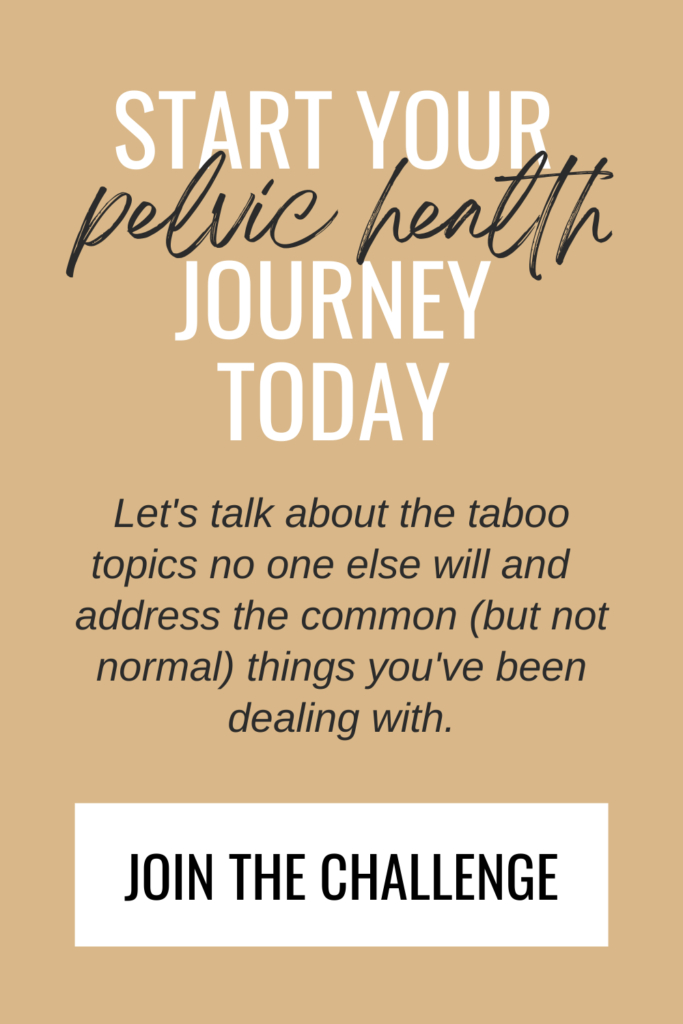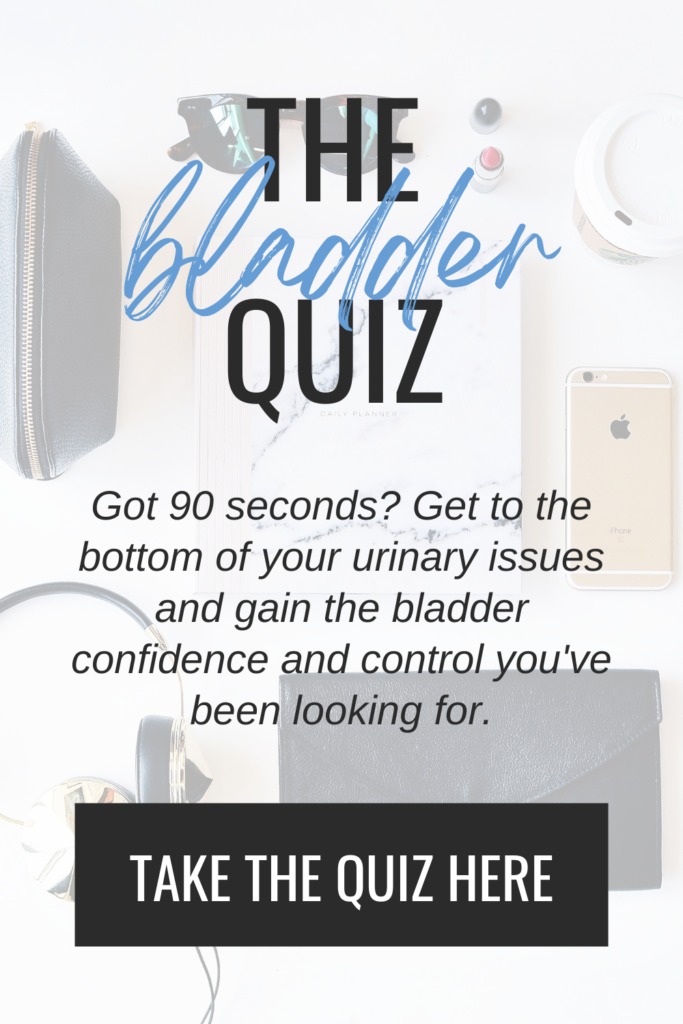Sleep is one of the most underrated, cheap, and easily accessible things you can do for your health, so naturally I’m obsessed with finding every possible way to get the most out of this amazing resource. I mean, seriously…put on comfy clothes, close your eyes, lie there for eight hours, and wake up feeling better in every aspect of the word??? Count me in! I still look back and question five-year-old Amanda for not taking more naps, and these days you’ll find me fiercely protecting my 8:30 pm bedtime over movie nights, parties, and outings because I truly believe in the benefits of a good night’s rest.
Studies show that one in three American adults don’t get adequate sleep, and I suspect this to be one of the many causes for the rise in hormone imbalances, mental health issues, and autoimmune disorders. Rest helps regulate, restore, and rejuvenate the body, and those who have a hard time sleeping can attest to the physical, mental, emotional, and spiritual toll poor sleep can take over time.
When I was pregnant with Lolo, one of the things I worried about most as a new mom was getting enough sleep— because I know I’m useless without it and my abilities as a person and professional all revolve around the quality of my rest. So since that first trimester reality check with weeks of little to no energy, I’ve done a lot of research aaaaand experimenting to naturally promote healthy sleep habits and get the most out of my shut-eye.
If sleep isn’t a problem for you, then you likely don’t need my help in this department unlessssssss you’re looking optimize the good thing you’ve already got goin’. But for those who are struggling, either to fall or stay asleep, this list was written with you in mind. As always– take what serves you, leave what doesn’t, and look at these as opportunities or possibilities worth potentially trying.
THE TIPS-
1. Stick to a schedule. Not only should you try to wake up and fall asleep within the same hour every day (yes…even on weekends), but keeping your daily tasks of meals, exercise, and work around a similar time frame helps your internal clock run smoothly. This doesn’t mean you have to be super strict and there’s still room for spontaneity, but when your brain and body are on a schedule, you’re more likely to fall asleep with ease when bedtime rolls around.
2. Dress comfortably. You know what you like to wear (or not wear) while sleeping, so don’t compromise this because of dirty laundry or lack of energy. If you wear clothes to bed, make sure they’re clean, breathable, and will move with you through the night. And when you find your favorites that you reach for every evening (here’s mine…*wink wink*)buy at least two pairs so you’re never caught without them.
3. Your bed is for two things only–sleep and sex. While it may be tempting to hop in your oh-so-comfy bed for work, scrolling, or snacking, your bed should only be used for sleep and sex if you want your brain to shut off everything else when you get under the sheets. This strictness helps signal the brain that sleep is coming when you do get into bed, and over time it won’t expect anything else.
4. Keep your bedroom cool and dark. Think of where you sleep like a cave. Your room should be as dark as possible as light suppresses melatonin production, and cooler in temperature (around mid 60’s) to mimic the drop in body temperature that naturally takes place when you sleep. You can achieve this by keeping your windows covered and bedroom door shut throughout the day, with fans, wearing an eye mask, or even a bed with temperature control (see #10 for one of our best health investments ~ever~).
5. No caffeine after lunch. Drinking coffee, energy drinks, tea and soda in the afternoon can affect your ability to sleep at night as caffeine increases cortisol and adrenaline in the body and stimulates brain activity. Set your nervous system up for success by avoiding these things or choosing the decaf option at night when everything’s supposed to be winding down.
6. Read fiction. If reading at night is your thing, studies show that diving into fiction books is far more effective than non-fiction or self-help alternatives when trying to fall asleep. Fiction allows your imagination to wander and can help take your mind off of the list of stressors or to-do’s that have built up throughout the day versus a book that makes you think deeply or ends up giving you more tasks to complete.
7. Be strict with naps. Napping longer than thirty minutes or at all after 3 pm can affect your circadian rhythm and decrease how tired you are at bedtime. Trust me when I say I’m a nap lover too, but I’m careful to watch when my naps start and set an alarm (with a sigh) so I don’t exceed the thirty minute limit.
8. Drink water regularly throughout the day. One of the many causes of restless nights is the need to get up and urinate, and you can eliminate this by stopping your water drinking at least an hour before bed. Use a water bottle with measurements on the side and aim to consume about 5-10 ounces of water an hour throughout the day. This will help you hit your water-drinking goals far before bedtime and reduce nighttime trips to the bathroom.
9. Good bedding. I’m a proponent of all things cozy and hygge, and flax linen sheets have elevated my sleep experience in all the ways. These are a must as flax linen is antibacterial, hypoallergenic, breathable, stimulates blood flow, conducts heat, decreases radiation…I could honestly keep going with all the positives. We splurged on this sheet set while I was pregnant and it’s been one of my favorite health investments yet.
10. A supportive mattress. Speaking of all things comfy, the physical therapist in me cannot emphasize the importance of a good mattress enough. The debate of soft versus firm will continue to be one of preference, but at the end of the day you need a bed that supports your spine in whatever position you sleep most. (And don’t hesitate to take advantage of those extended return policies many mattresses come with!) We have an Eight Sleep mattress which not only checks all of our boxes for comfort, but also heats, cools, and has a vibrating alarm feature…all of which I swore I’d never use and now I don’t know how I’d live without them.
11. Pillows. While we’re at it, let’s talk pillows. I’m not a fan of one specific type or brand, but whatever you choose needs to support your spine to avoid jaw, neck, and back pain. PRO TIP: You can make any ol’ pillow perfect by placing a rolled-up towel or sheet (customized to a size that fits the side and/or back curves of your neck) at the bottom of your pillow, under the pillow and inside the pillowcase. Sleep with this role in the curve of your neck to put your spine in proper alignment. Adjust as needed and don’t hesitate to duct tape the roll once you find the optimal fit.
12. Avoid late-night exercise. Regular exercise is important for getting good sleep, butbecause exercise boosts your alertness and raises your endorphin levels, moving vigorously too late at night can make it difficult to fall asleep afterwards. If you’re going to do more than a nice walk or easy yoga flow, most research recommends putting at least six hours between your workout and bedtime. Now as a working mama, I understand that sometimes you just gotta get it in where you can, but if possible, moving in the first half of your day will interfere with your snoozin’ the least.
13. Piston breathing. Deep belly breathing is an important part of overall health as studies show most people only use twenty percent of their lung capacity. Taking deep breaths for just three to five minutes before bed can help increase oxygen consumption, lower stress and anxiety, and decrease heart rate– all things that improve sleep quality and quantity. For a step by step on how to breathe for allllllll the benefits, download this free guide which includes my favorite technique called piston breathing as well as other ways to relax the body and pelvic floor.
14. Get your little one(s) sleeping. Those who are in a similar season as me know that how you sleep often depends on how your babes are sleeping too. I’m knocking on all the wood as I share that Sloan’s been sleeping through the night since she was three months old thanks to the online course Taking Cara Babies…which means I am too. Even for those who aren’t a fan of sleep training, Cara’s take on “rigid routine, flexible schedule” is one that I think most mamas can get on board with, especially if it means everyone’s waking up happy and rested in the morning.
RELATED POST: 12 Not-So-Obvious Gift Ideas for the Mom-To-Be
15. No blue light within an hour of bedtime. While I’ve already shared that light in general suppresses melatonin production (the hormone that makes you drowsy), blue light hinders it even more so. Do your best to turn off all screens at least an hour before bed, but if you just can’t, blue light glasses are a second best option and you’ll look extra cute burnin’ the midnight oil or snugglin’ up for movie night.
16. Tinctures. While melatonin works great for some, I personally don’t like it as it gives me the weirdest dreams. Others swear by CBD, but my job prohibits me from using it (although as soon as I can, I’ll be giving this brand of sleep gummies a try because I’ve heard so many good things). I fell in love with tinctures while pregnant, and continue to use them as needed to help me sleep, especially on nights my mind won’t calm down. Skullcap quiets the nervous system and passionflower relaxes the mind. I place a dropper full of each in a shot glass, fill the rest with water, then shoot this before jumping in the shower every night. It provides the perfect amount of calm without making you loopy, and I wake up feeling rested but not groggy.
17. Only get in bed when you’re tired. Going to bed if you’re not tired is a recipe for disaster. This often takes place if you’re trying to fall asleep at a time that’s not your usual or if you’re doing something stimulating too late at night (see #5, #12, #15, and #19). If your clock is telling you it’s time to sleep but you’re not quite feelin’ it, try doing a few more things to make you drowsy (like #6, #13, #21, and #23) before jumping back in bed.
18. Put your legs up the wall. Poor circulation is another cause for the need to urinate at night. By putting your legs above your heart for just a few minutes before bed, you’ll improve blood flow, lymphatic drainage, and therefore bladder efficiency. My favorite place to do this is on the bed or couch– lying on your back, simply rest your feet on the wall that your bed is against or on the back of your couch. Bonus if you combine this with piston breathing (#13) rather than reach for your phone.
RELATED POST: Easy + Impactful Ways to Use Your Time Confetti to Improve Your Pelvic Floor Health
19. Be mindful of dinnertime. Eating a large meal right before falling asleep will not only hinder digestion and spike blood sugar, but will also make it harder to fall asleep as your body’s trying to process what you just consumed. If possible, eat your last meal at least three hours before going bed to give your body time to digest. That being said…don’t go to bed hungry either. A light snack of fruit, nuts, even some meat and cheese are great options. Basically, a mini charcuterie board before bedtime is 35792304975% a go!
20. Resolve sources of worry. A restless mind is my biggest hurdle when trying to fall and stay asleep, and this has amplified since becoming a mama and watching my heart walk around outside of my body. One of the things that helps calm my thoughts are the tinctures I mentioned earlier (#16), but if that’s not your thing, journaling what’s on your mind, talking about your feelings, or hashing out unresolved issues is so helpful. The saying “never go to bed angry” applies to way more than couples and far more than anger and can be oh so helpful in getting a good night’s rest.
21. Essential oils. There are many essential oils out there known to help with sleep, but I like to keep it simple with a few drops of lavender sprinkled on my pillow a few nights a week. Not only is lavender known to relieve anxiety, but it also provides a light sedative effect that I’ve noticed and appreciated since using this technique.
22. Shoot for 7-9 hours. Sleep needs vary by person, but at least seven to nine hours is necessary for most to get the optimal amount of deep sleep and feel rested in the morning. Do the math to figure out when you need to go to sleep to hit eight hours, then see how you feel. Experiment from there to find your sweet spot for the amount of energy you need in a day.
23. Develop a nighttime ritual. Ok…this is my *chef’s kiss* secret to getting good sleep and a nice little combo of just about everything I’ve shared so far. Doing the same routine every night before bed signals your brain that sleep is coming and you’re much more likely to fall asleep easily. I start with taking my tinctures (#16) followed by jumping in the shower, my Primally Pure facial regimen including dry brushing and gua sha, breathing (#13) with my legs up the wall (#18) and a little light reading (#6) until I doze of. Let me tell ya…it used to take me ~forever~ to fall asleep, but now I’m lucky if I can finish a few paragraphs of my book before I’m out.
24. Don’t force it. If you’re not asleep within twenty minutes of your head hitting the pillow, don’t stay in bed. Get up and do something (preferably from the list above) and then try getting back in bed again when you feel tired. Staying in bed without sleeping will lead to frustration, clock-watching, and the temptation to reach for your phone, all of which won’t help the situation one bit.
25. Consider a sleep study. If you attempt all of the above and still have a hard time falling and/or staying asleep, you may want to consider a sleep study to test for things like sleep apnea, narcolepsy, insomnia, or restless leg syndrome. While not the most fun procedure (or so I’ve heard), getting to the bottom of and ultimately addressing your sleep issues is key to improving your quality of rest and health in the future.
While none of these tips are profound, the list stacks up. And if you think about it, there’s actually a lot of little but significant things that go into getting a good night’s sleep. With some mindfulness, habit stacking, and proactivity, you’re bound to find a routine that works for you effortlessly. “Your day starts at bedtime” is a phrase I come back to often, and feeling awake, energized, and able to function is worth the extra work at bedtime that starts to feel like a blessing more than a chore once you get going (trust me here).
Life should be so much more than just getting through the day over and over again, and good sleep will break that cycle and contribute exponentially to your ability to tackle the day. If you’ve got passions, projects, goals, and dreams (which I knooooow you do), sleeping well is a ~must~ to achieving them.
Now here’s the deal– you can’t keep this one to yourself. If you have that person in your life who’s always complaining about being tired or restless nights, share this post! I’ve got a feeling the world would be a better (and happier and healthier) place if everyone got the rest they needed and I’d be oh so grateful if you helped me spread the word, one friend/coworker/family member at a time.
Sweet dreams, friend!
– Amanda
Disclaimer: The content provided here does not constitute medical advice, nor is it a substitute for personalized healthcare. If you have concerns about a medical condition, diagnosis, or treatment, you should consult with a licensed healthcare professional.
Disclosure: Some of the links above are affiliate links, meaning, at no additional cost to you, I will earn a commission if you click through and make a purchase. No pressure, but I have a feeling you’re gonna like what I’ve taken the time to put my recommendation behind.



















